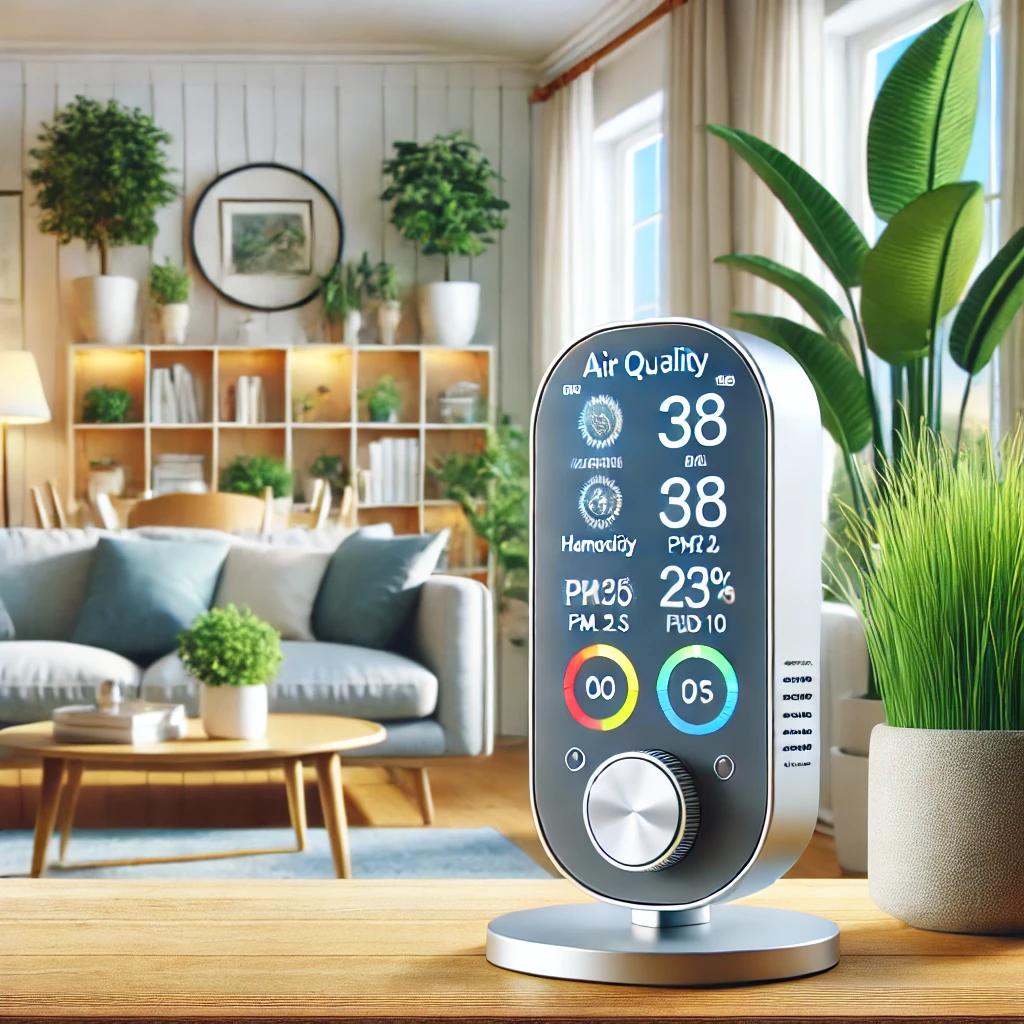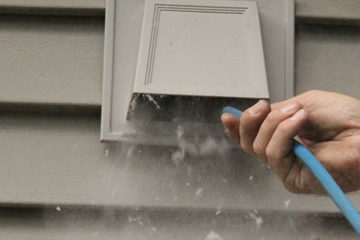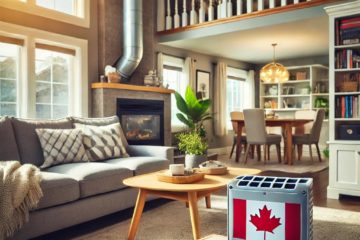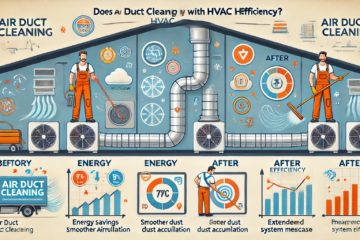The Indoor Air Quality Calculator is a comprehensive tool designed to help homeowners assess the quality of air in their homes and receive personalized recommendations for improving it. By inputting various factors such as the age and size of the home, number of occupants, presence of pets, smoking habits, and recent HVAC maintenance, this calculator provides a detailed “Home Air Quality Score.” It also takes into account specific air quality-related features like radon levels, humidity levels, and the efficiency of furnace filters based on their MERV rating.
This tool is particularly valuable as it not only highlights potential air quality concerns but also suggests actionable steps to address them, such as scheduling duct cleaning, upgrading air filters, or installing essential safety detectors like carbon monoxide and radon detectors. Whether you’re dealing with allergies or respiratory issues, or simply want to ensure a healthier living environment, the Indoor Air Quality Calculator empowers you with the knowledge and solutions needed to maintain optimal air quality in your home.
Indoor Air Quality Calculator
Instructions: Please fill out the following details about your home and its air quality-related features. This tool will provide you with an estimated air quality score and recommendations for improvement based on your inputs.
Home Information
Home Air Quality Score:
Understanding and Improving Your Home’s Air Quality with the Indoor Air Quality Calculator
Indoor air quality (IAQ) is a crucial aspect of maintaining a healthy and comfortable home environment. Many factors, such as the presence of allergens, humidity levels, and even the efficiency of your HVAC system, can significantly impact the air you breathe daily. To help homeowners evaluate and enhance their home’s air quality, we’ve developed the Indoor Air Quality Calculator. This powerful tool offers personalized insights and recommendations to ensure your living space is as healthy as possible. In this article, we'll explore the various elements the calculator covers and why each is important for your indoor environment.
1. Home Age and Size
The age and size of your home play a significant role in determining its air quality. Older homes may have outdated HVAC systems, deteriorating building materials, and accumulated dust in ducts, all contributing to poor air quality. Additionally, larger homes with complex ductwork may have more areas where contaminants can accumulate. By inputting your home’s age and size, the calculator can gauge the potential risk factors associated with older construction or large spaces and provide targeted recommendations such as duct cleaning or system upgrades.
2. Number of Occupants
The more people living in a home, the higher the potential for indoor air pollution. Humans produce carbon dioxide, and activities such as cooking and cleaning can release various pollutants into the air. Additionally, increased occupancy can lead to more dust, dander, and general wear and tear on the HVAC system. The calculator considers the number of occupants to assess how this might influence air quality and suggests actions to ensure the home remains well-ventilated and free of excessive pollutants.
3. Presence of Pets
Pets are wonderful companions but can also be a significant source of allergens. Pet hair, dander, and even saliva can affect air quality, especially if they are not managed properly. Homes with pets may require more frequent duct cleaning and higher-efficiency air filters to capture the tiny particles that can contribute to allergies and asthma. The calculator recommends specific actions for homes with pets, such as regular cleaning routines and filter upgrades, to help manage these common allergens.
4. Smoking in the Home
Cigarette smoke is one of the most harmful pollutants you can introduce into your home environment. It contains a variety of toxic chemicals that can linger in the air and on surfaces, significantly impacting air quality and posing serious health risks. If smoking occurs in your home, the calculator will highlight the need for robust air purification measures and frequent air quality testing to ensure a safer indoor environment for all occupants.
5. HVAC System Maintenance and Duct Cleaning History
Regular HVAC maintenance and duct cleaning are essential for maintaining good indoor air quality. Dust, debris, and mould spores can accumulate in the ductwork over time, and without proper maintenance, these can circulate throughout your home. The calculator assesses how often your system is maintained and cleaned, providing recommendations to keep your HVAC system functioning efficiently and your indoor air-free from contaminants.
6. Presence of Mold or Musty Odors
Mold is a common problem in homes with poor ventilation or high humidity levels. It can produce allergens, irritants, and in some cases, toxic substances that can cause health issues. If the calculator detects conditions favorable to mold growth, such as musty odors or visible mold, it will suggest immediate actions like mold remediation and improved ventilation to prevent further growth and protect your health.
7. Humidity Levels
Maintaining optimal humidity levels (between 30% and 50%) is crucial for indoor air quality. Low humidity can cause dry skin and respiratory irritation, while high humidity can encourage mould growth and increase the presence of dust mites. The calculator helps you understand how your home’s humidity levels may be affecting your air quality and provides tips for using humidifiers or dehumidifiers to maintain a healthy balance.
8. Radon Levels
Radon is a colourless, odourless radioactive gas that can seep into homes from the ground. It’s a leading cause of lung cancer among non-smokers, making it a critical component of indoor air quality. The calculator allows you to input your home’s radon levels and provides recommendations for testing and mitigation if necessary, ensuring your family’s safety from this invisible threat.
9. MERV Rating and Filter Replacement Frequency
The efficiency of your HVAC filter, measured by its MERV (Minimum Efficiency Reporting Value) rating, determines how well it can capture airborne particles. A higher MERV rating means better filtration. However, filters need to be replaced regularly to maintain efficiency. The calculator uses your input on filter rating and replacement frequency to suggest improvements, such as upgrading to a higher-rated filter or increasing the frequency of replacements, to keep your air clean and reduce particulate matter like dust, pollen, and pet dander.
10. Air Conditioning and Ventilation
Proper ventilation and air conditioning are vital for maintaining indoor air quality, especially in homes that experience extreme temperatures or have limited natural airflow. The calculator considers whether your home has air conditioning and offers suggestions for improving ventilation and airflow to prevent the buildup of pollutants and maintain a comfortable indoor environment.
11. Safety Detectors (Carbon Monoxide, Radon, and Smoke Detectors)
Safety detectors are essential for protecting your family from invisible threats. Carbon monoxide detectors alert you to the presence of this deadly gas, while smoke detectors provide early warning of fires. Radon detectors help you monitor the levels of this harmful gas in your home. The calculator checks if your home is equipped with these critical safety devices and recommends installing them if they are missing, ensuring a safer living environment.
Conclusion: Taking Control of Your Indoor Air Quality
The Indoor Air Quality Calculator is a powerful tool that provides a comprehensive evaluation of your home’s air quality based on various factors. By using this tool, you can gain valuable insights into the health of your indoor environment and receive personalized recommendations to improve it. Whether it’s upgrading your HVAC filters, scheduling duct cleaning, or testing for radon, taking these steps can significantly enhance the air you breathe and contribute to a healthier, safer home. Try the Indoor Air Quality Calculator today and take the first step towards better indoor air quality!




